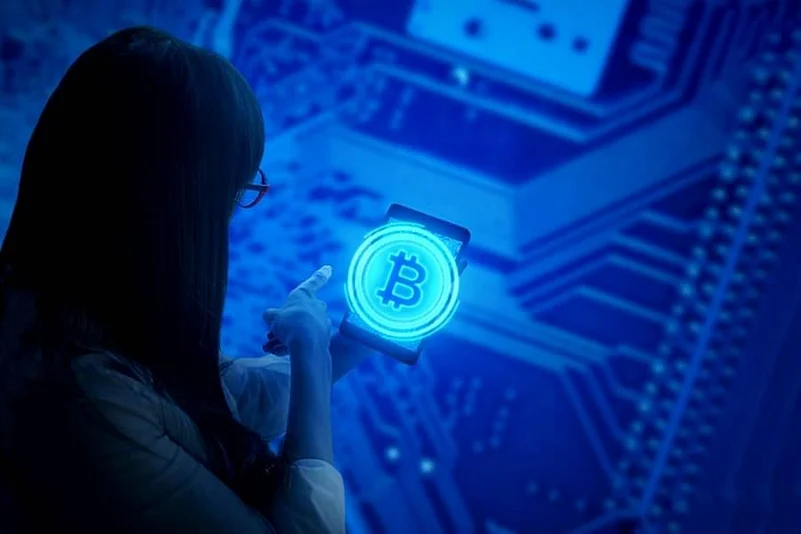Blockchain technology has revolutionized our concept of data, trust, and money transactions. The core of every blockchain network are participants referred to as validators. These individuals or organizations are responsible for the security, validity, and decentralization of the blockchain. What exactly do validators do, and why are they so important to blockchain networks?
Learning Blockchain Fundamentals
In order to learn about validators, we must first learn what a blockchain is. A blockchain is an electronic record book in which data is contained in blocks and connected with each other in a chain. Such a record book is maintained on numerous computers (nodes) around the globe. Blockchain networks do not depend on a centralized system but depend on decentralized systems for the validation and storage of data.
With each transaction that takes place—be it for the intention of sending cryptocurrency, storing contract information, or storing supply chain information—it needs to be verified before being included in the blockchain. And here is where validators fit in.
Who are validators?
Validators are unique players within a blockchain network that verify and authenticate transactions. They verify that each transaction is in compliance with the network's rules and that no effort is made to trick the system, for example, double-spending the same digital money twice.
Imagine validators as accountants or blockchain guardians. Validators verify whether the transactions are correct and then let them be included in the blockchain only after that. Validators prevent fraud and error in the network if they don't exist.
How Do Validators Work?
Validator operation depends on the consensus algorithm operated by the blockchain. A consensus algorithm refers to how nodes in a network agree with the state of the blockchain. Two of the most common forms of consensus algorithms are
Proof of Work (PoW)—employed by blockchains such as Bitcoin. Here, miners (another validator type) dig in by cracking complex mathematical puzzles to verify transactions and construct blocks. It is extremely power- and energy-consuming.
Proof of Stake (PoS)—employed by blockchains such as Ethereum (once it transitioned to Ethereum 2.0), Cardano, and Solana. Validators in the PoS system are chosen based on the amount of cryptocurrency that they "stake" or keep as collateral. The higher coins they stake, the higher their probability of being chosen to validate transactions and get rewarded.
PoS validators do not require costly computer equipment or lots of electricity like PoW. They must lock up and hold at least the native tokens of the network, which provides them with an economic incentive to be honest. If they confirm false blocks, they can lose their locked-up tokens—a technique called "slashing."
Validator Responsibilities
Validators have a few primary responsibilities:
Authenticating Transactions: They verify if a transaction is valid—verifying that the sender has sufficient funds, digital signatures are genuine, and that the transaction adheres to the rules of the protocol.
Proposing New Blocks: The majority of PoS validators alternate proposing new blocks of transactions to be added to the blockchain.
Witnessing Blocks: Validators other than the proposing validator witness the proposed block and assent or dissent that it is right. The process builds consensus among the network.
Securing the Network: Validators are constantly on the network, securing the network against evil attacks, i.e., the "51% attack," where a few malicious players can own the blockchain.
Reliability and Uptime: Validators must have stable, secure computer nodes up the majority of the time. Poor performance or failure incurs fees.
Why Validators Are Important
Validators ensure a blockchain network is reliable and trustworthy. Without validators, the system will not be reliable and trustworthy. Below are some of the reasons validators are important:
Decentralization: Rather than a single central organization, validators share the work of transaction verification across the world.
Security: Validators ensure malicious or fake action is prevented by adhering to the protocol guidelines to the letter.
Incentivization: Validators are rewarded (usually in the native currency of the network) for honesty, and good action is rewarded, and the network keeps running.
How to become a Validator
It is something anyone can do, though blockchain networks all do it differently. You generally require:
Some of the network's staking cryptocurrency
A reliable and stable internet connection
Knowledge for blockchain node installation and maintenance operating
Uptime commitment and dedication to play with the network
In other networks, people are also able to contribute indirectly by delegating their tokens to an existing validator. This makes it possible for people who do not have the technical capabilities or means to still make a contribution to the network and receive some of the benefits.
Issues Faced by Validators
Although validators are required, the work is not without issues:
Technical Upkeep: Validators need to have their systems updated and secure all the time.
Economic Risk: Validators in PoS blockchains risk losing the staked tokens if they behave maliciously or err.
Competition: On big networks, validators will need to compete with others to receive rewards, which will consume profit margins.
Conclusion
Validators are the foundation of blockchain networks. They validate transactions, secure the network, and make it decentralized. As blockchain technology becomes ubiquitous and sophisticated, validators' contribution will still be at its center. Be you an enthusiast, an investor, or a developer, it makes you realize how blockchain has vowed to maintain trust and transparency.














